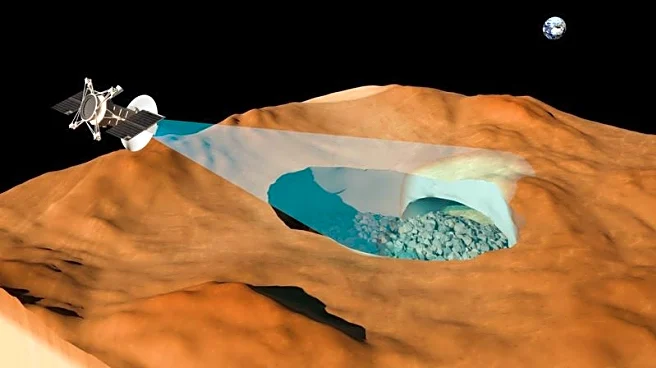What's Happening?
The Expedition 73 crew aboard the International Space Station is conducting research on how space affects the sensory system and DNA data storage. NASA astronauts Zena Cardman and Jonny Kim are using virtual reality goggles to study how astronauts adjust to microgravity, focusing on the vestibular system's role in balance and spatial orientation. The research aims to develop countermeasures for space dizziness and improve training for long-duration missions. Additionally, Kim is investigating DNA as a method for storing digital data, which could reduce reliance on traditional storage methods in space.
Why It's Important?
Understanding how the human body adapts to space is crucial for the success of long-term missions to the Moon, Mars, and beyond. The research on space orientation and DNA data storage has implications for astronaut health and mission planning. By developing effective countermeasures for space dizziness, NASA can enhance crew performance and safety during extended missions. The exploration of DNA data storage offers a potential solution for managing data in space, addressing challenges related to weight and resource constraints.
What's Next?
The findings from these studies will inform future mission planning and training protocols, helping prepare astronauts for the challenges of space travel. Continued research on the International Space Station will contribute to a deeper understanding of human adaptation to microgravity and the development of innovative technologies for space exploration.










